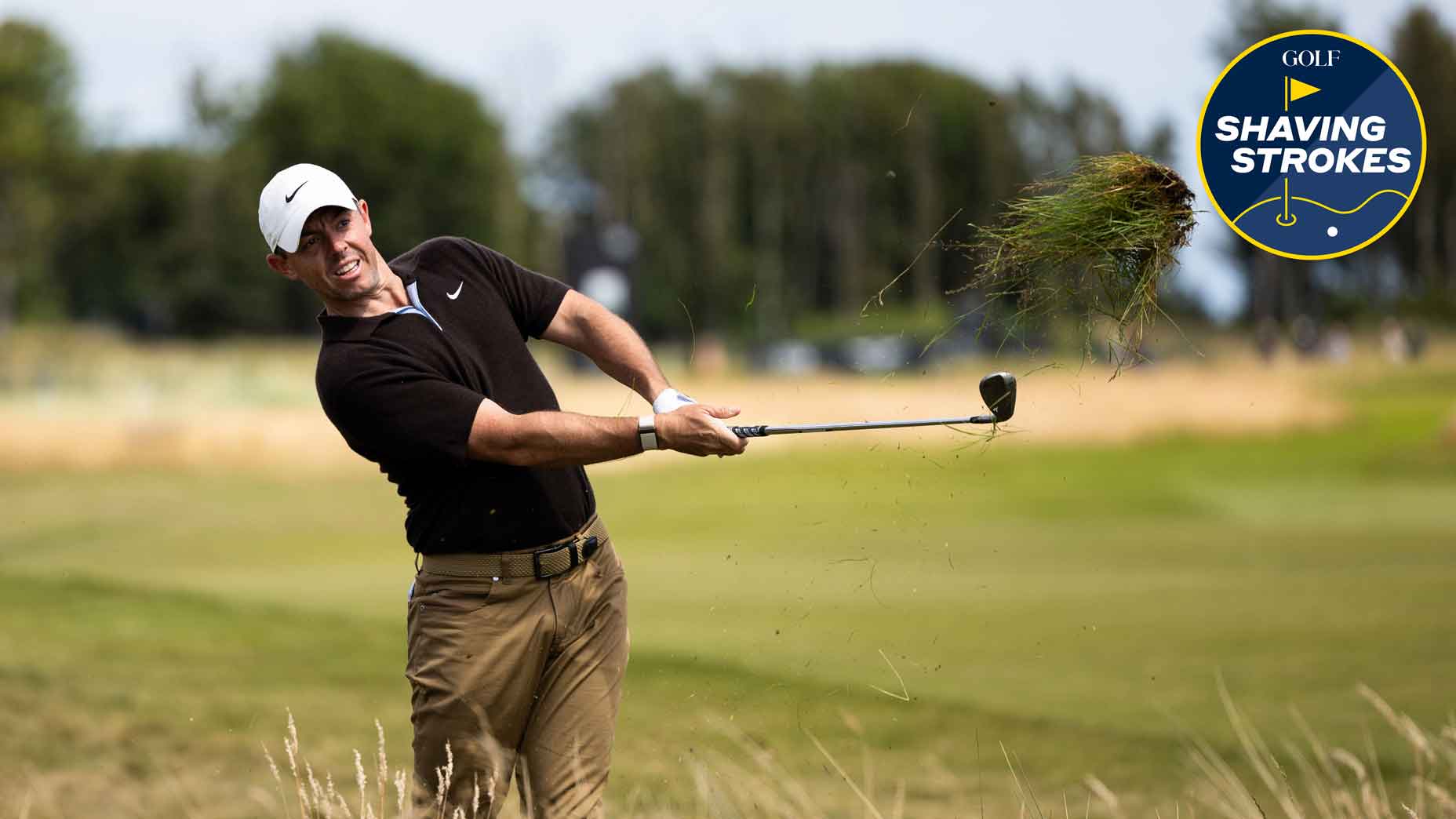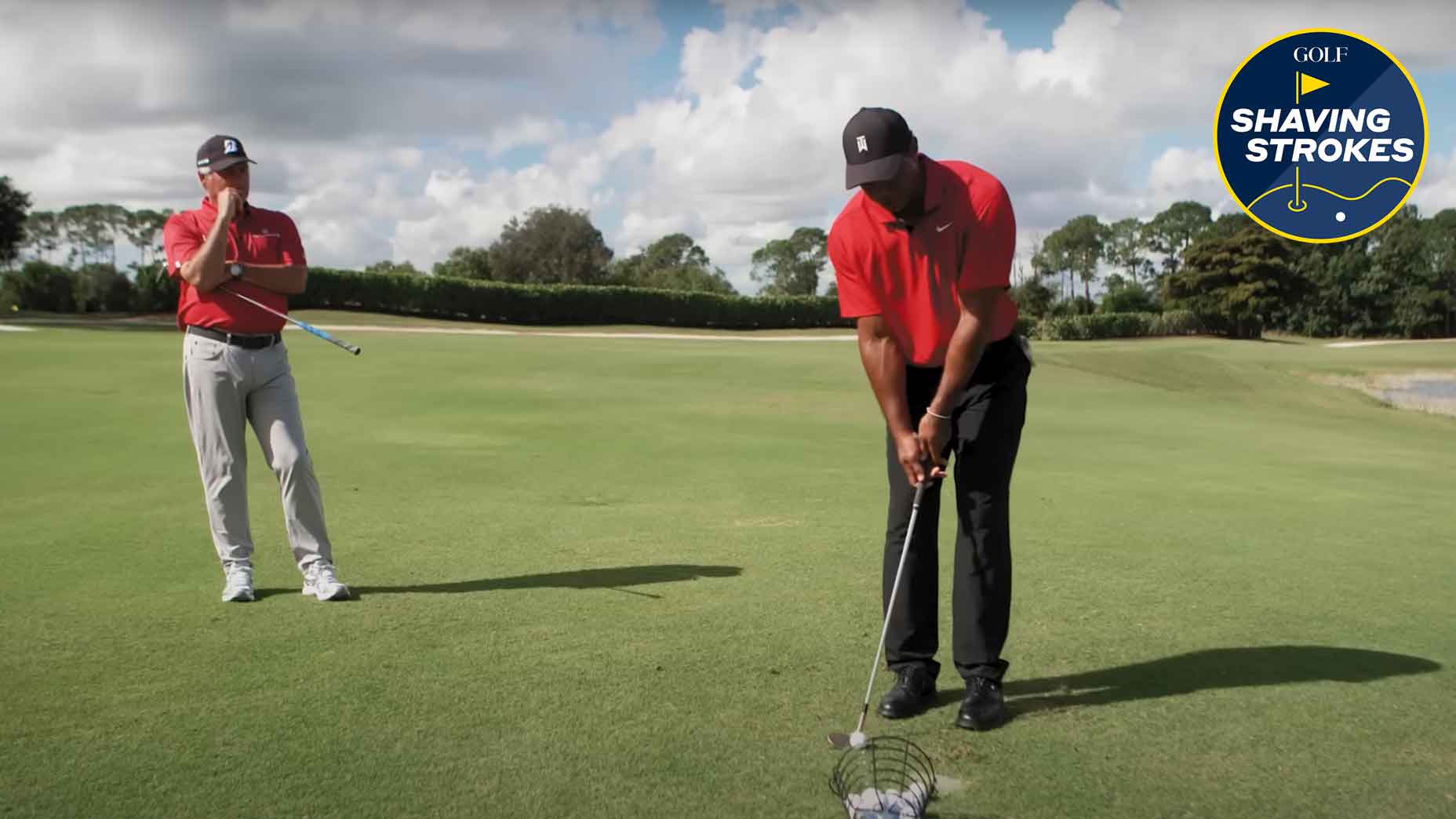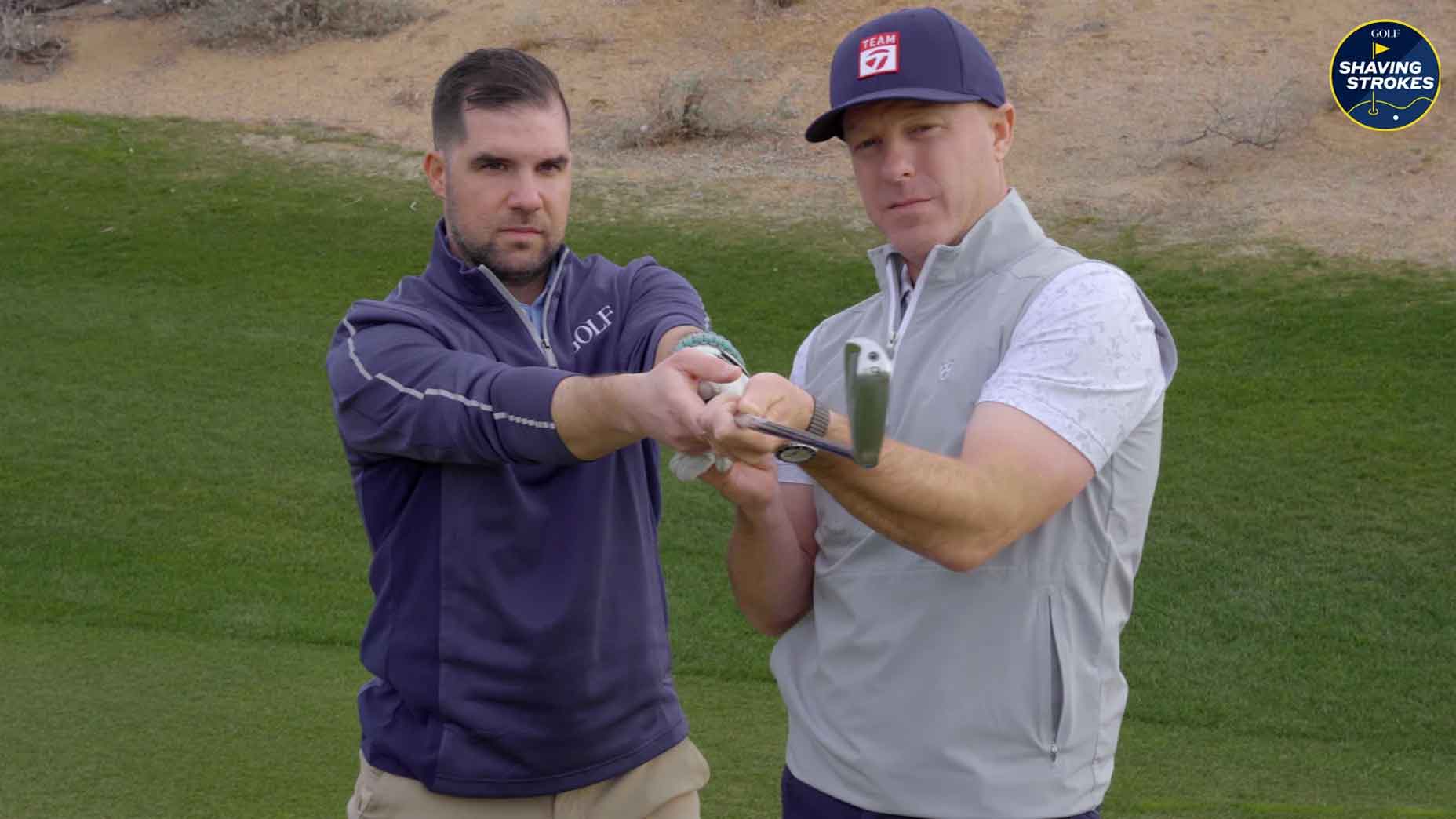
These are the best ways to navigate shots into the upwind vs. the downwind.
Getty Images
Welcome to Shaving Strokes, a GOLF.com series in which we’re sharing improvements, learnings and takeaways from amateur golfers just like you — including some of the speed bumps and challenges they faced along the way.
Depending on what the wind is doing on a specific day, your shots can be impacted greatly. It can be especially tricky deciphering how to play shots upwind vs. downwind.
While most amateur players know to try and keep the ball down when the wind is in their face, it’s not always the easiest thing to execute. It takes a different type of golf swing, and then requires practicing those types of shots before ever getting to the course.
The same practice must be applied when hitting downwind on the golf course, understanding what club to choose and which type of ball-flight to go with in order to use the wind to your advantage — rather than flighting everything 10 yards over your target.
To help navigate hitting upwind vs. downwind, GOLF Top 100 Teacher Debbie Doniger shares a few tips to follow. So take a peek below and start mastering these tricky types of shots.
Use these adjustments when hitting upwind vs. downwind
No matter what level of player you are, facing a shot either upwind or downwind is difficult. But with the right technique and adjustments, you can see more success the next time Mother Nature wants to stir it up and make things tricky on you. Just follow the steps below.
3 ways to master upwind shots
1. When dealing with severe upwind, it’s a must to control your irons. This means learning how to hit your lower irons to shorter distances vs. full distances. To practice this, try utilizing a three-quarter swing.
For instance, I work on hitting my 4-wood to 100 yards first, then increase the length of my backswing to have the ball travel to 140 yards next. By shortening my backswing, I’m able to keep the ball lower and beneath the wind. This also gives me the feel I need to use the correct rhythm and tempo to hit a certain yardage with a less lofted club.
2. Next, it’s imperative you deloft your irons. This can be done a few different ways, but one of the simplest is to avoid using too much shaft lean — helping reduce the loft of the clubhead.
3. Finally, always take more club, choke down a little bit, and swing slower by using a three-quarter swing. When dealing with wind in your face at 10 miles per hour, you can typically expect the conditions to knock your ball down by about eight yards.
3 ways to master downwind shots
1. Most golfers salivate at the opportunity to hit downwind shots off the tee — because we simply envision bombing it by getting the ball up into that stream of air. But first, you need to know how to do that.
In order to hit the ball higher and make it ride the wind from the tee box, tee it higher, widen your stance, and hit more up. This helps launch the ball, which allows the wind to catch it and basically carry it farther distances.
2. Since downwind shots don’t typically impact the curve of the ball, you should always be a bit more aggressive on these types of shots. Sure, you need to maintain proper swing sequencing in order to avoid an open or closed clubface, but stare down your target and go for it, as the wind can help make sure you at least get it there.
3. If you choose to use a full swing, remember that downwind can impact the distance of your ball by about 12 yards, so be mindful of this when making your club selection.
For instance, if you’re on a par-3 that measures 185 yards to the middle of the green, go with the club that you consistently hit 175 yards. That ensures you that a mishit will likely still reach the green, while a pure shot won’t completely carry the green and go off the back.
Rukket Sports SPDR Portable Driving Range
$319.99
The SPDR Portable Driving Range is a large 10 ft wide by 7 ft tall net with side wings and an overhang designed to catch shots hit from every club in the bag. The folding frame is easy to deploy and pack-up between uses. Don’t let its portability fool you, this is a heavy duty net used by professionals that includes a ball return feature so you can practice with a single ball. Improve your game with confidence using the most versatile and practical golf net available today.
Features
COMMERCIAL GRADE FOR THE MOST DEMANDING PRACTICE SETUPS!
TOUGH and RUGGED: Heavy-duty folding metal frame. 2-minute setup, quicker to store away with the included carrying case.
FOOLPROOF PRACTICE: Net STAYS on. NO need to remove each time the net is packed away!
USE REAL GOLF BALLS: Rukket Tough Netting! Use real golf balls and your own tee with any club in your bag.
ADDED BENEFITS: Use only one ball and includes our NO scratch rubber base.
Product Specs
10ft x 7ft
What’s in the Box
(1) SPDR Net
(1) FREE Side Barrier Protective Wings
(1) Tri turf Mat
RUKKET FAIR PLAY GUARANTEE & LIFETIME WARRANTY: At Rukket Sports we know you came to win. We also understand that in order to win you need to train hard, so that’s why we’re proud to offer the Rukket Fair Play Guarantee & Lifetime Warranty for no-risk purchasing plus outstanding USA-based customer service!
View Product













